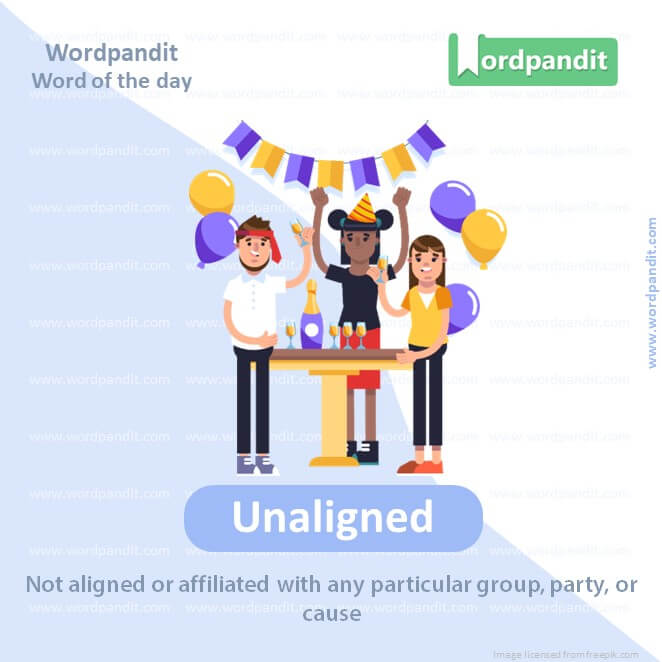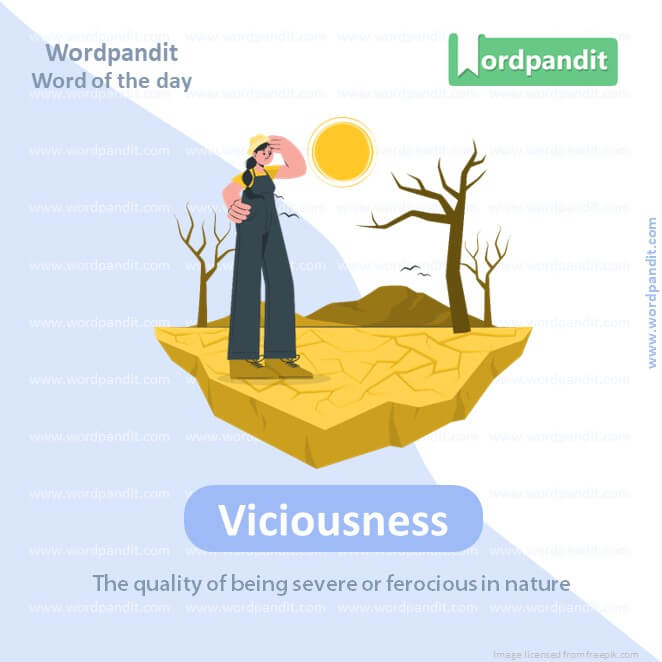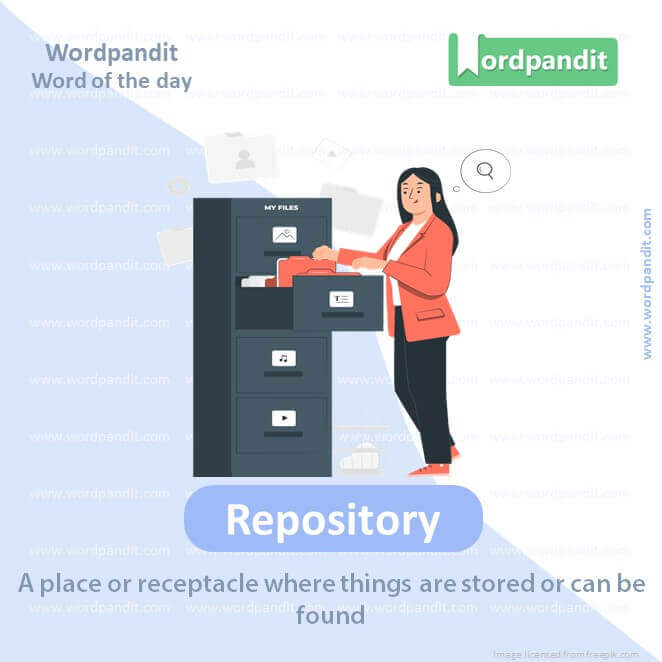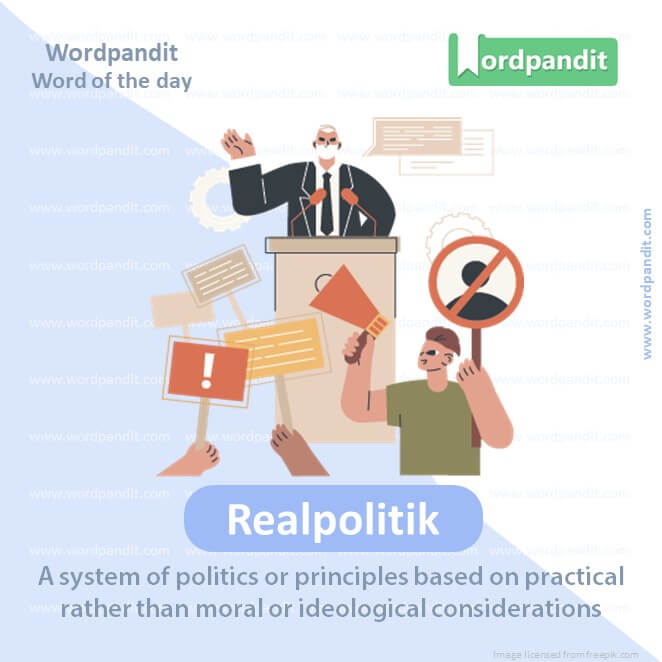Daily Vocabulary Words: List of Daily Used Words
Hi there. Welcome to this special section @ Wordpandit.
Our endeavour here is straightforward: highlighting important daily vocabulary words, you would encounter in The Hindu. This is your repository of commonly used words; essentially, we are posting a list of daily used words. Hence, this has significant practical application as it teaches you words that are commonly used in a leading publication such as The Hindu.
Visit the website daily to learn words from The Hindu.

WORD-1: UNALIGNED
CONTEXT: India, historically an unaligned nation, finds itself at crossroads in the shifting geopolitics of the 21st century.
SOURCE: The Hindu
EXPLANATORY PARAGRAPH: Imagine you have two lines of toy soldiers. One line is Team A, and the other is Team B. Now, imagine there’s a toy soldier standing alone, not in any line. That soldier is “unaligned” because he’s not choosing either Team A or Team B. He’s independent!
MEANING: Not aligned or affiliated with any particular group, party, or cause (adjective).
PRONUNCIATION: yoo-nuh-LYND
SYNONYMS: Neutral, noncommittal, impartial, independent, nonpartisan
USAGE EXAMPLE:
1. The country remained unaligned during the war.
2. She gave an unaligned opinion about the two options.
3. Several unaligned voters attended the debate.
4. The group was unaligned and did not support either candidate.
WORD-2: TEPID
CONTEXT: The tepid response from the central government regarding the recent flood calamity has disappointed the state officials.
SOURCE: The Hindu
EXPLANATORY PARAGRAPH: Imagine touching water that is neither too hot nor too cold, just a little warm. That’s tepid water! It’s like water that’s been left out after boiling for some time and has cooled down a bit.
MEANING: Only slightly warm; lukewarm (adjective).
PRONUNCIATION: TEH-pid
SYNONYMS: Lukewarm, warmish, half-hearted, indifferent, unenthusiastic
USAGE EXAMPLE:
1. She poured the tepid water into the cup.
2. His response to the news was tepid and unexcited.
3. The soup was served tepid, not hot.
4. The audience gave a tepid applause after the performance.
WORD-3: RESENTMENT
CONTEXT: The sudden policy shift sparked widespread resentment among farmers who felt marginalized by the decision.
SOURCE: The Hindu
EXPLANATORY PARAGRAPH: Resentment is a feeling you get when you think someone has treated you unfairly or done something wrong to you, and you can’t let go of that feeling. It’s like when your friend takes your favorite toy without asking, and even after you get the toy back, you still feel upset about it.
MEANING: A feeling of anger or displeasure about someone or something unfair (noun).
PRONUNCIATION: rih-ZENT-muhnt
SYNONYMS: Bitterness, indignation, grudge, animosity, rancor
USAGE EXAMPLE:
1. She harbored resentment towards her coworker for stealing her idea.
2. Years of resentment built up between the two brothers.
3. The decision caused a lot of resentment among the team members.
4. Letting go of your resentment can make you feel better.

WORD-4: VICIOUSNESS
CONTEXT: The viciousness of the electoral campaign raised concerns about the tone of political discourse in the country.
SOURCE: The Hindu
EXPLANATORY PARAGRAPH: Viciousness is when someone or something acts really mean and aggressive. It’s like when a wild animal snarls and tries to bite; that’s showing viciousness.
MEANING: The quality of being severe or ferocious in nature (noun).
PRONUNCIATION: VIH-shus-ness
SYNONYMS: Brutality, ferocity, savagery, cruelty, malevolence
USAGE EXAMPLE:
1. The dog’s viciousness was evident when it bared its teeth.
2. The argument escalated in viciousness.
3. He was shocked by the viciousness of the online comments.
4. Her sudden viciousness surprised everyone in the room.

WORD-5: REPOSITORY
CONTEXT: The newly inaugurated museum stands as a repository of the region’s rich cultural and historical heritage.
SOURCE: The Hindu
EXPLANATORY PARAGRAPH: A repository is like a special box or place where you keep important things safe. Just like how you might have a toy box where you store all your favorite toys, a repository stores specific things, like information or objects, so they are safe and can be found easily.
MEANING: A place or receptacle where things are stored or can be found (noun).
PRONUNCIATION: rih-POZ-ih-tor-ee
SYNONYMS: Storehouse, archive, depot, vault, warehouse
USAGE EXAMPLE:
1. The library is a repository of knowledge.
2. They kept the ancient artifacts in a secure repository.
3. Digital repositories are used to store online data.
4. The museum serves as a repository for rare paintings.

WORD-6: OCCIDENTAL
CONTEXT: The seminar explored the influences of Occidental philosophy on modern Indian thought and its implications.
SOURCE: The Hindu
EXPLANATORY PARAGRAPH: “Occidental” is a word that describes things from the western part of the world, like Europe and America. Imagine a big map; the left side, or west side, is where occidental places are!
MEANING: Relating to the countries of the West, especially the Western Hemisphere or Europe (adjective).
PRONUNCIATION: ock-sih-DEN-tal
SYNONYMS: Western, European, American, non-Oriental, Atlantic
USAGE EXAMPLE:
1. He studied both Oriental and Occidental philosophies.
2. The art show displayed Occidental pieces from the 18th century.
3. She has a preference for Occidental cuisine.
4. The book contrasts Occidental and Oriental cultures.

WORD-7: REALPOLITIK
CONTEXT: Analysts suggest that the nation’s shift in foreign policy is a clear nod to realpolitik, prioritizing strategic interests over ideological stances.
SOURCE: The Hindu
EXPLANATORY PARAGRAPH: Realpolitik is a way of making decisions based on practical needs and realities, rather than just what might be right or ideal. It’s like if you want ice cream for dinner, but instead you choose to eat vegetables because it’s better for your health. That’s a very simple way of thinking like Realpolitik!
MEANING: A system of politics or principles based on practical rather than moral or ideological considerations (noun).
PRONUNCIATION: ray-ahl-POH-lee-teek
SYNONYMS: Pragmatism, practicality, expediency, realism, utility
USAGE EXAMPLE:
1. The leader’s decisions were driven by Realpolitik rather than ideology.
2. Some criticize him for his cold approach to Realpolitik.
3. Understanding Realpolitik is crucial for international relations.
4. She argued that Realpolitik often overshadows human rights.
WORD-8: CAMOUFLAGE
CONTEXT: The new forest ranger units are being equipped with advanced camouflage gear to monitor wildlife and prevent poaching effectively.
SOURCE: The Hindu
EXPLANATORY PARAGRAPH: Camouflage is a way of hiding by blending in with the surroundings. Imagine a green frog sitting on green leaves. Because it’s the same color as the leaves, it’s hard to spot. That’s what camouflage does: it helps animals or things hide by making them look like what’s around them.
MEANING: A way of hiding by looking like the surroundings (noun/adjective).
PRONUNCIATION: CAM-oh-flahj
SYNONYMS: Disguise, concealment, cover, mask, screen
USAGE EXAMPLE:
1. The army uniforms have a camouflage pattern.
2. Some animals use camouflage to hide from predators.
3. The tents were painted in camouflage colors.
4. Her makeup acted as a camouflage for her scars.
WORD-9: REFERENDUM
CONTEXT: The proposed referendum on the local governance issue is set to be a defining moment for the state’s political landscape.
SOURCE: The Hindu
EXPLANATORY PARAGRAPH: A referendum is like when your teacher asks the whole class to vote on something, like what game to play or which book to read. In a referendum, grown-ups vote to make a decision about a big question or idea for their country or city.
MEANING: A general vote by people on a single political question (noun).
PRONUNCIATION: ref-er-EN-dum
SYNONYMS: Vote, ballot, poll, plebiscite, popular vote
USAGE EXAMPLE:
1. The government held a referendum to decide on the new law.
2. Many people turned out to vote in the historic referendum.
3. The results of the referendum surprised many political experts.
4. Some issues are too complex to be decided by a simple referendum.
WORD-10: DISSONANCE
CONTEXT: The dissonance between the central and state governments on the matter of education reforms has led to prolonged debates.
SOURCE: The Hindu
EXPLANATORY PARAGRAPH: Dissonance is when two sounds or ideas don’t match and feel a little uncomfortable together. Imagine hearing two instruments playing different tunes at the same time; it might sound strange and not very nice. That’s dissonance!
MEANING: A lack of harmony or agreement between things (noun).
PRONUNCIATION: DISS-uh-nans
SYNONYMS: Discord, inharmoniousness, conflict, disagreement, incongruity
USAGE EXAMPLE:
1. The dissonance between the two singers was noticeable.
2. There’s a dissonance between his words and actions.
3. The modern artwork created a dissonance in the traditional room.
4. They discussed the dissonance of ideas within the committee.
Vocabulary Daily Use Words
Mastering the art of effective communication involves acquiring a rich vocabulary. A crucial component to this is the learning of vocabulary daily use words. However, how does one assimilate these vocabulary daily use words efficiently into their lexicon? Let’s explore some helpful strategies.
Firstly, the most organic way to encounter vocabulary daily use words is through reading extensively. By reading a variety of texts, we not only come across a plethora of vocabulary daily use words but also understand their contextual application. Books, articles, and even social media posts can provide us with ample examples and familiarity.
Another constructive method is to develop a dedicated vocabulary journal. Here, you can jot down the vocabulary daily use words, their meanings, synonyms, antonyms, and form sentences using them. Regularly revisiting and revising from this journal will enhance your comprehension and recall of vocabulary daily use words.
Mnemonic strategies can also be extremely beneficial in remembering vocabulary daily use words. This could be through associating a word with a related image, creating a catchy jingle, or even forming a story. These visual and auditory cues aid in retaining the vocabulary daily use words, making your learning experience engaging and efficient.
Moreover, the key to mastering vocabulary daily use words lies in their practical application. Use them in your day-to-day conversations, emails, or social media posts. This not only helps in retention but also ensures that your language usage remains rich and diversified.
Finally, exploring and appreciating the history and etymology of words can make your encounter with vocabulary daily use words more fulfilling. The more interested and curious you are about the words you learn, the better you remember them.
In conclusion, the successful learning of vocabulary daily use words involves strategic reading, maintaining a word journal, employing mnemonic devices, using the words regularly, and fostering a spirit of language curiosity. With these strategies, you are sure to enhance your command over vocabulary daily use words, thus enriching your verbal expression.













